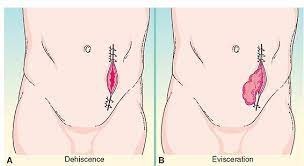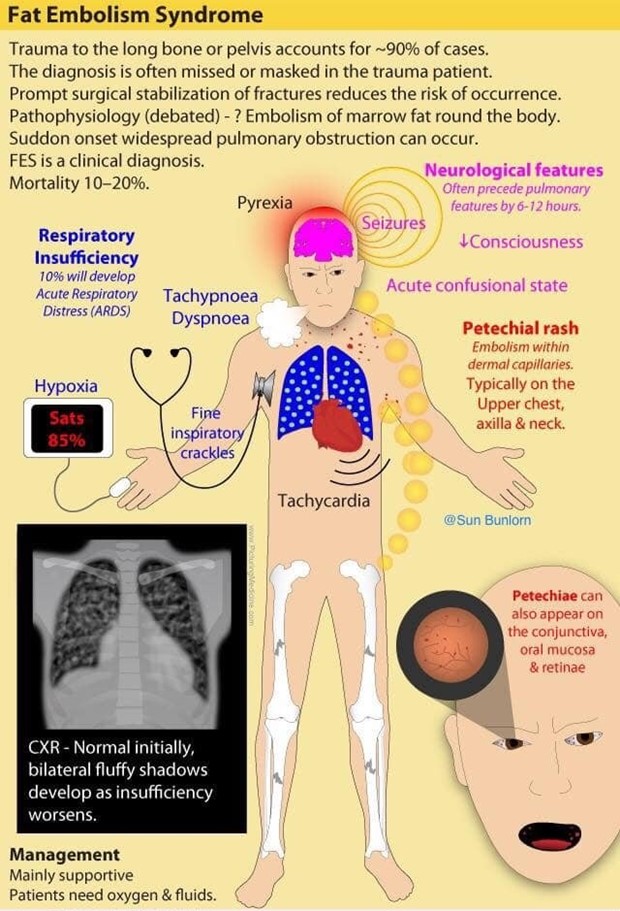The nurse is assessing a patient's postoperative wound and finds it has separated from the suture line with extrusion of the intestine through the opening. How does the nurse document this finding?
Wound evisceration
Wound dehiscence
Wound infection
Wound tunneling
The Correct Answer is A
Wound evisceration refers to the protrusion of internal organs or tissues through an open wound. In this case, with the separation of the wound and extrusion of the intestine through the opening, it is a clear indication of wound evisceration. It is a surgical emergency that requires immediate medical attention.
Wound dehiscence, on the other hand, refers to the separation or opening of a previously closed surgical incision or wound. It does not involve the extrusion of internal organs or tissues.

Wound infection refers to the presence of infectious microorganisms in the wound, leading to inflammation and other signs of infection.
Wound tunneling refers to the formation of narrow channels or tunnels within the wound, often caused by improper wound healing or infection.
Nursing Test Bank
Naxlex Comprehensive Predictor Exams
Related Questions
Correct Answer is ["250"]
Explanation
To calculate the rate at which the nurse should set the IV pump in mL/hr, we need to determine the infusion rate.
The client is receiving 1 gram of antibiotic in 500 ml of fluid over 2 hours. To find the rate in mL/hr, we divide the total volume (500 ml) by the total time (2 hours):
Rate = Volume / Time Rate = 500 ml / 2 hours Rate = 250 ml/hr
Therefore, the nurse should set the IV pump at a rate of 250 mL/hr.
Correct Answer is D
Explanation
Fat embolism syndrome can occur when fat globules enter the bloodstream after a long bone fracture, such as a femur fracture. The fat globules can travel to the lungs and cause respiratory distress and decreased oxygen saturation. The symptoms observed in the client, including tachypnea (labored breathing), decreased oxygen saturation (88%), and the presence of petechiae (small red or purple spots) on the neck and anterior chest, are consistent with fat embolism syndrome.

Fat embolism syndrome is a serious condition that requires immediate medical attention. Notifying the healthcare provider allows for prompt evaluation, confirmation of the diagnosis, and initiation of appropriate treatment. This may involve further diagnostic tests such as a chest CT scan, as mentioned in one of the options, to rule out other potential causes or complications.
Whether you are a student looking to ace your exams or a practicing nurse seeking to enhance your expertise , our nursing education contents will empower you with the confidence and competence to make a difference in the lives of patients and become a respected leader in the healthcare field.
Visit Naxlex, invest in your future and unlock endless possibilities with our unparalleled nursing education contents today
Report Wrong Answer on the Current Question
Do you disagree with the answer? If yes, what is your expected answer? Explain.
Kindly be descriptive with the issue you are facing.
